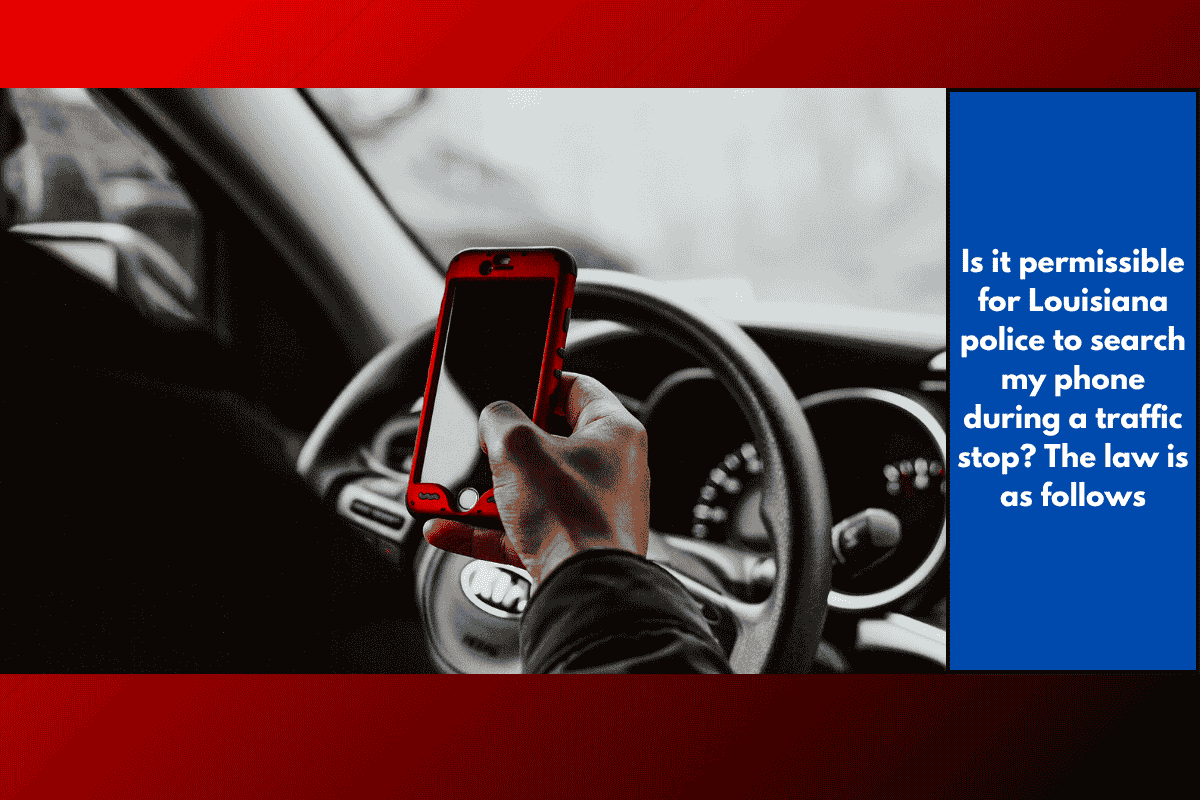In Louisiana, police generally cannot search your phone during a traffic stop without a warrant or your consent. However, there are certain situations in which a phone search may be permissible. Understanding the state’s laws regarding search and seizure is important to know when your rights are protected and when an officer may be allowed to search your device.
Legal Basis for Phone Searches in Louisiana
Fourth Amendment Protections: Under both the U.S. Constitution (Fourth Amendment) and Louisiana state law, police officers cannot conduct searches of your personal belongings, including your phone, without probable cause or your consent. This is a fundamental protection against unreasonable searches and seizures.
Search with Consent: If a police officer asks for permission to search your phone, you have the right to refuse unless they have a valid reason, such as a warrant or exigent circumstances. If you consent to the search, the officer may examine the contents of your phone. It’s important to remember that you can revoke your consent at any time.
Search Incident to Arrest: If you are arrested during the traffic stop, the police may be allowed to search your phone as part of a search incident to arrest. However, in 2014, the U.S. Supreme Court ruled in the case of Riley v. California that police must obtain a warrant to search the digital contents of your phone, even if you are arrested. This means that while an officer may seize your phone if you’re arrested, they cannot search its contents without a warrant, except in specific emergency situations.
Probable Cause and Exigent Circumstances: In some cases, if police have probable cause that your phone contains evidence of a crime and there are exigent circumstances (such as a threat to public safety or the risk of evidence being destroyed), they may be able to search your phone without a warrant. These situations are rare and must meet strict legal criteria.
What Happens If You Refuse to Let Police Search Your Phone?
If you refuse to allow the police to search your phone during a traffic stop, they cannot proceed with the search unless they have a warrant or probable cause. If the police do search your phone without your consent or without legal justification, the evidence they obtain may be considered inadmissible in court, as it was obtained through an unlawful search.
Can Louisiana Police Search Your Phone for Evidence of a Crime?
While police cannot search your phone solely for investigative purposes during a traffic stop, if they have probable cause to believe that your phone contains evidence of a crime (such as texts or photos related to a criminal activity), they may seek a warrant to conduct a more thorough search. However, the process of obtaining a warrant must follow legal procedures, and police cannot search your phone without that authorization.
In Louisiana, police officers cannot search your phone during a traffic stop unless you consent, they have a warrant, or there are exigent circumstances. If you are arrested, police can seize your phone but must obtain a warrant before searching its contents, unless there are emergency situations. Always remember that you have the right to refuse consent for a search, and you should be aware of your rights to protect your personal information.
SOURCES
[1] https://kpel965.com/can-louisiana-police-search-your-phone-during-a-traffic-stop/
[2] https://www.ericgjohnsonlaw.com/what-rights-do-i-have-during-a-police-search/
[3] https://www.legis.la.gov/legis/Law.aspx?d=112364
[4] https://www.lawrence-lawfirm.com/what-to-do-when-the-police-want-to-search-your-car-or-home-in-louisiana
[5] https://www.mjvergis.com/civil-rights/illegal-search-seizure/














